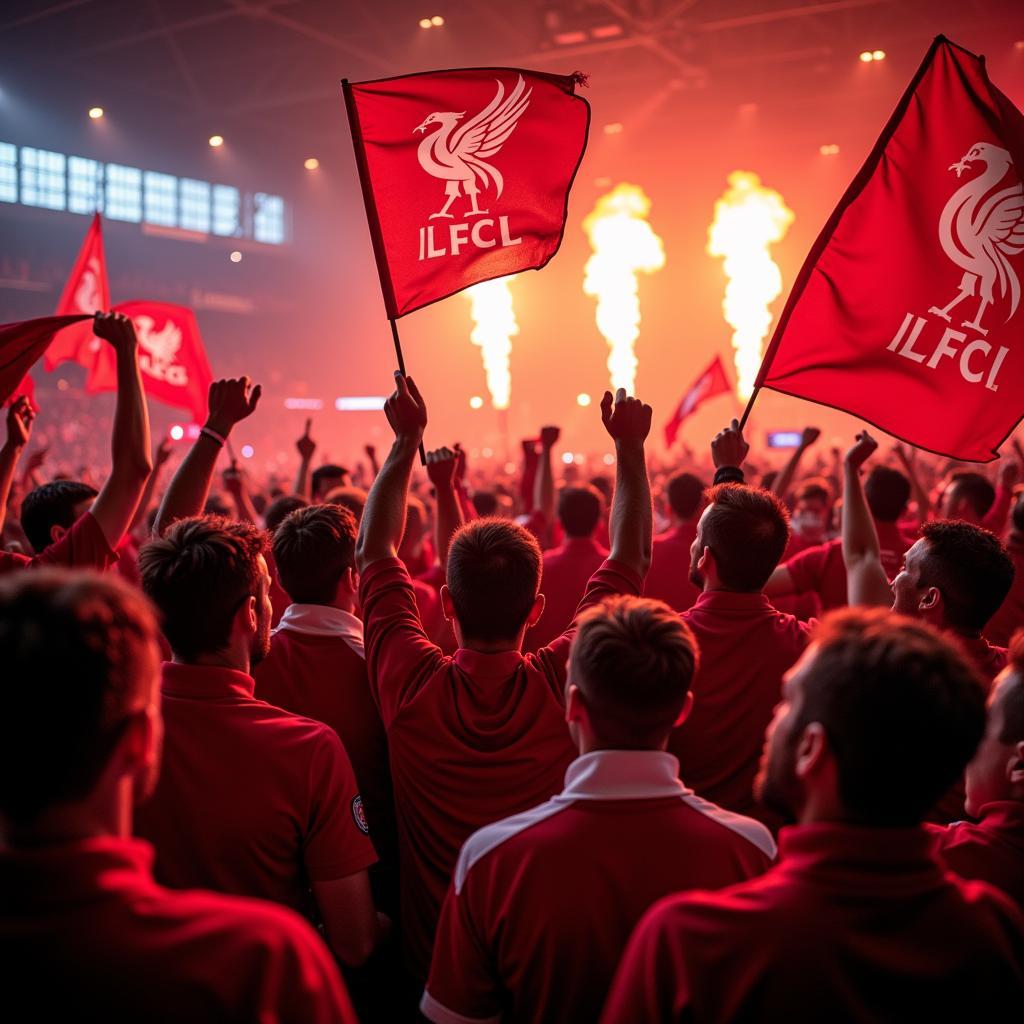The question of whether “fan” needs an “s” is a common one, especially in the world of sports. It boils down to whether you’re talking about one enthusiast or multiple. This article dives into the usage of “fan” and “fans,” exploring the nuances of pluralization and providing clear examples to help you use the terms correctly.
When to Use “Fan”
The singular form “fan” refers to a single person who admires or is enthusiastic about something, particularly a sport, team, or individual player. For instance, “He is a dedicated fan of Manchester United.” The word “fan” originates from “fanatic,” showcasing the deep passion often associated with sports enthusiasts.
When to Use “Fans”
“Fans,” the plural form, simply designates multiple enthusiasts. So, you would say, “The Liverpool fans celebrated their team’s victory.” The “s” signifies more than one person sharing the same enthusiasm. It’s straightforward: one fan, two or more fans.
 Liverpool Fans Celebrating Victory
Liverpool Fans Celebrating Victory
Common Mistakes and How to Avoid Them
One common mistake is using “fan” when referring to a group. While it’s tempting to shorten phrases, grammatical accuracy is essential. Instead of “The fan were cheering,” it should be “The fans were cheering.” Another error is using “fans” when referring to a specific individual’s fandom. Saying “He is a big fans of Messi” is incorrect. It should be “He is a big fan of Messi.”
Is “Fanbase” Singular or Plural?
“Fanbase” refers to the collective body of fans for a particular entity. It’s treated as a singular noun. For example, “Barcelona has a massive global fanbase.” You would not say “fanbases” unless referring to multiple distinct fanbases, such as “The fanbases of Real Madrid and Barcelona are known for their intense rivalry.”
 Barcelona’s Massive Global Fanbase
Barcelona’s Massive Global Fanbase
“Fan” vs. “Fans”: A Quick Recap
- Fan: Singular. Use when referring to one individual. Example: “She is a devoted fan of Roger Federer.”
- Fans: Plural. Use when referring to multiple individuals. Example: “The fans went wild after the winning goal.”
- Fanbase: Singular. Use when referring to the collective body of fans. Example: “The fanbase eagerly awaited the new season.”
Using “Fan” and “Fans” in Different Contexts
The rules remain consistent across various contexts, whether you’re talking about football, basketball, music, or even a particular brand. A single enthusiast is a “fan,” and multiple enthusiasts are “fans.”
Expert Insight:
“Understanding the difference between ‘fan’ and ‘fans’ is crucial for clear communication in the sports world. Using the correct form demonstrates respect for the language and enhances your credibility.” – Dr. James Carter, Linguistics Professor, University of Oxford.
 A Devoted Roger Federer Fan
A Devoted Roger Federer Fan
Conclusion
The question of whether “fan” needs an “s” is easily answered: It depends on whether you’re talking about one person or multiple people. “Fan” is singular, while “fans” is plural. By understanding this simple rule, you can confidently discuss your favorite teams, players, and sports with grammatical precision.
If you need further assistance, please contact us at Phone Number: 0903426737, Email: fansbongda@gmail.com Or visit our address: Lot 9, Area 6, Gieng Day Ward, Ha Long City, Gieng Day, Ha Long, Quang Ninh, Vietnam. We have a 24/7 customer support team.


